Community grazing initiative gives South Sudan’s children opportunity to play and learn
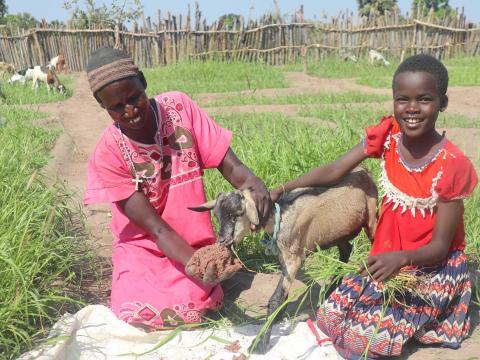
World Vision and the Food and Agriculture Organization (FAO) introduced an integrated market-oriented livestock production in South Sudan’s Warrap State to promote community-based dry season grazing reserves, efficient management and utilization of locally available feed resources.
Over 600 farmers and cattle keepers were organized into groups as they learned about improved forage production and conservation of resources. “In our community, children do not go to school because they are made to watch over animals ", shares 56-year old Abuk Athuai, the leader of the Iliet group in Kuec South Payam.
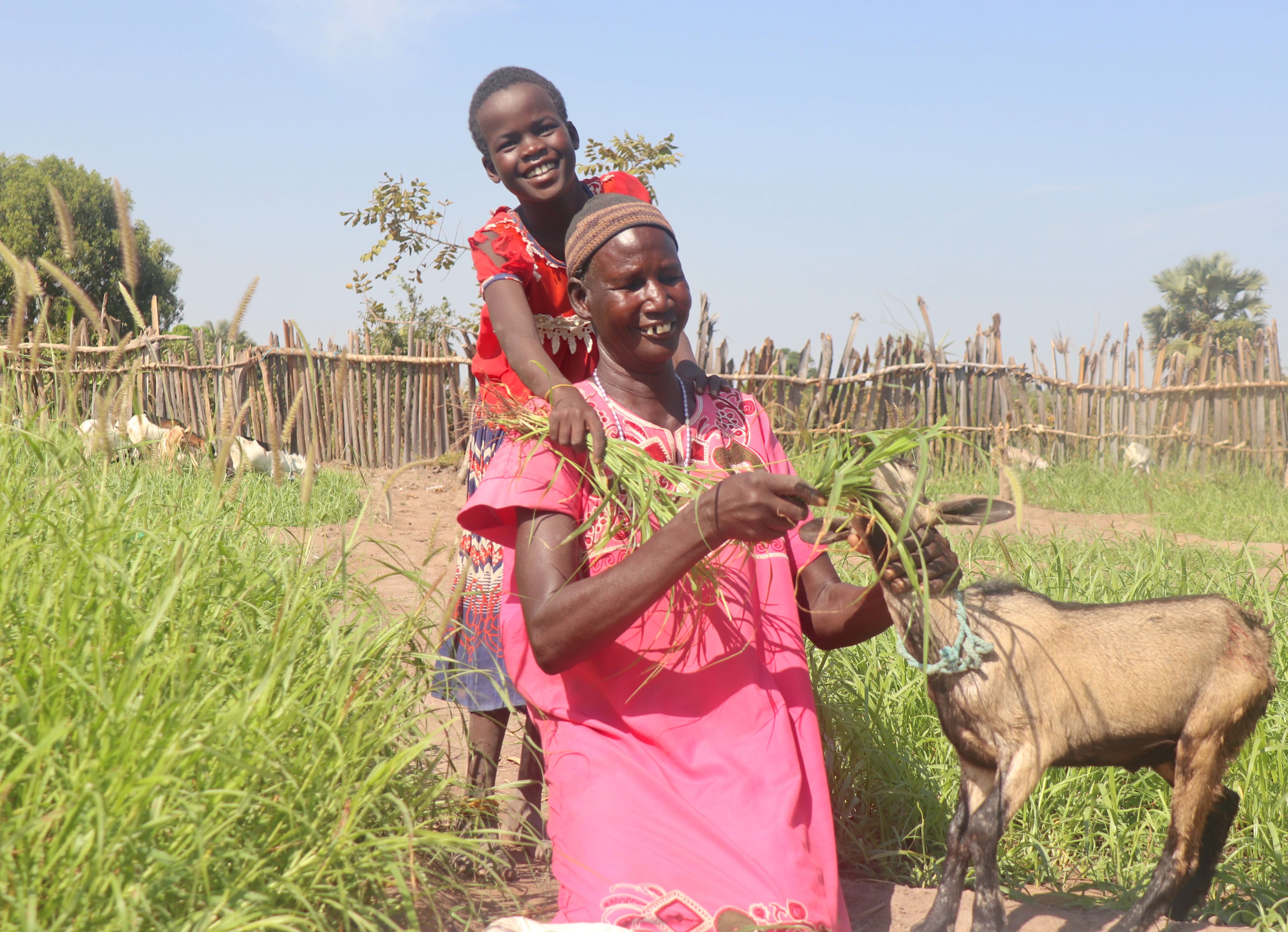
World Vision provided over 80 goats, seeds, Sudan grass and buffalo grass to two groups with 60 members in Kuac South and Man-Aloor in Gogrial West and Tonj North counties.
“Thirty of us are now equipped with skills and provided with tools. For example, we learned to preserve groundnuts residue to feed the goats during the dry season. We dry them under the shade for three days, pack them in bags and keep them on hay racks to prevent ants from eating it”, says Abuk.
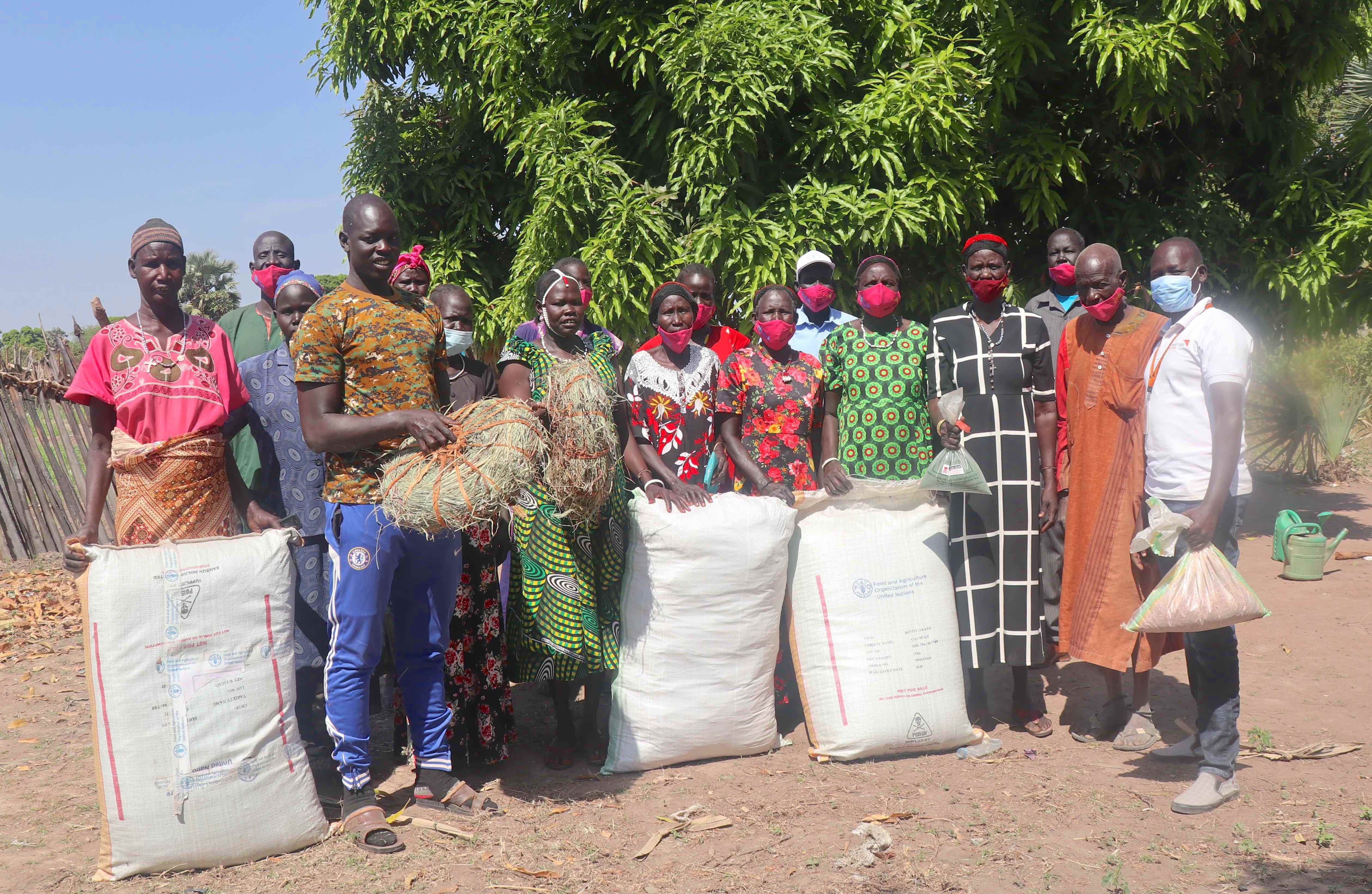
Eight-year old Amet shares, “Our duty as children is making sure the goats are taken to graze daily. What our parents learned made life easy for us, giving us time to play apart from just tending the goats. My mother even promised to send me to school next year after the group sells the goats.”
Mary Ayen, 48, enjoys irrigating the fodder farm every day to keep it green and fresh for the goats. She says, “I personally don’t usually encourage people to keep goats during dry season in the community. When its dry everywhere, it is harder for children, women like me, and the elderly to walk on long distances to take the goats.”
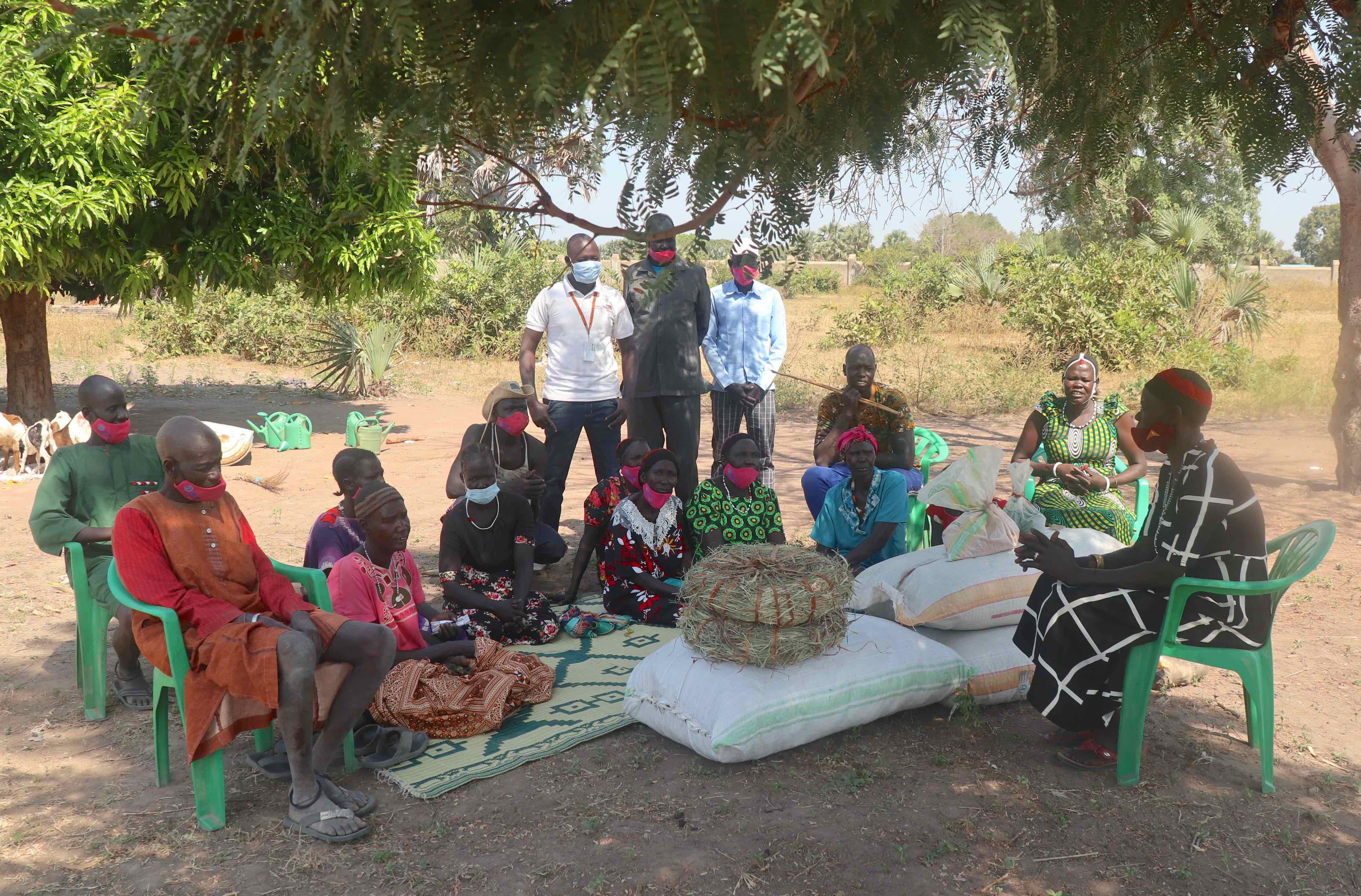
She adds, “With what we learned, the goats now feed on fresh grass, saving our children from the long walk to Jur River in search of pasture. The goal for the group now is to train other people and expand the fodder farms.”
With what we learned, the goats now feed on fresh grass, saving our children from the long walk to Jur River in search of pasture.
Abuk shared that the residents of Iliet, one of the villages in Kuac South, with over 90 households, all get supply from the same water point. She says, “As of now water is a bit of a challenge due to the big population but the group members are committed to water the fodder farms every day.”
The group appeals to World Vision and partners to drill another water source to address this need. “After selling these goats, we will buy more and sell after fattening them. We plan to open businesses to support the families of the group members thus fighting hunger in the community”, Abuk adds.
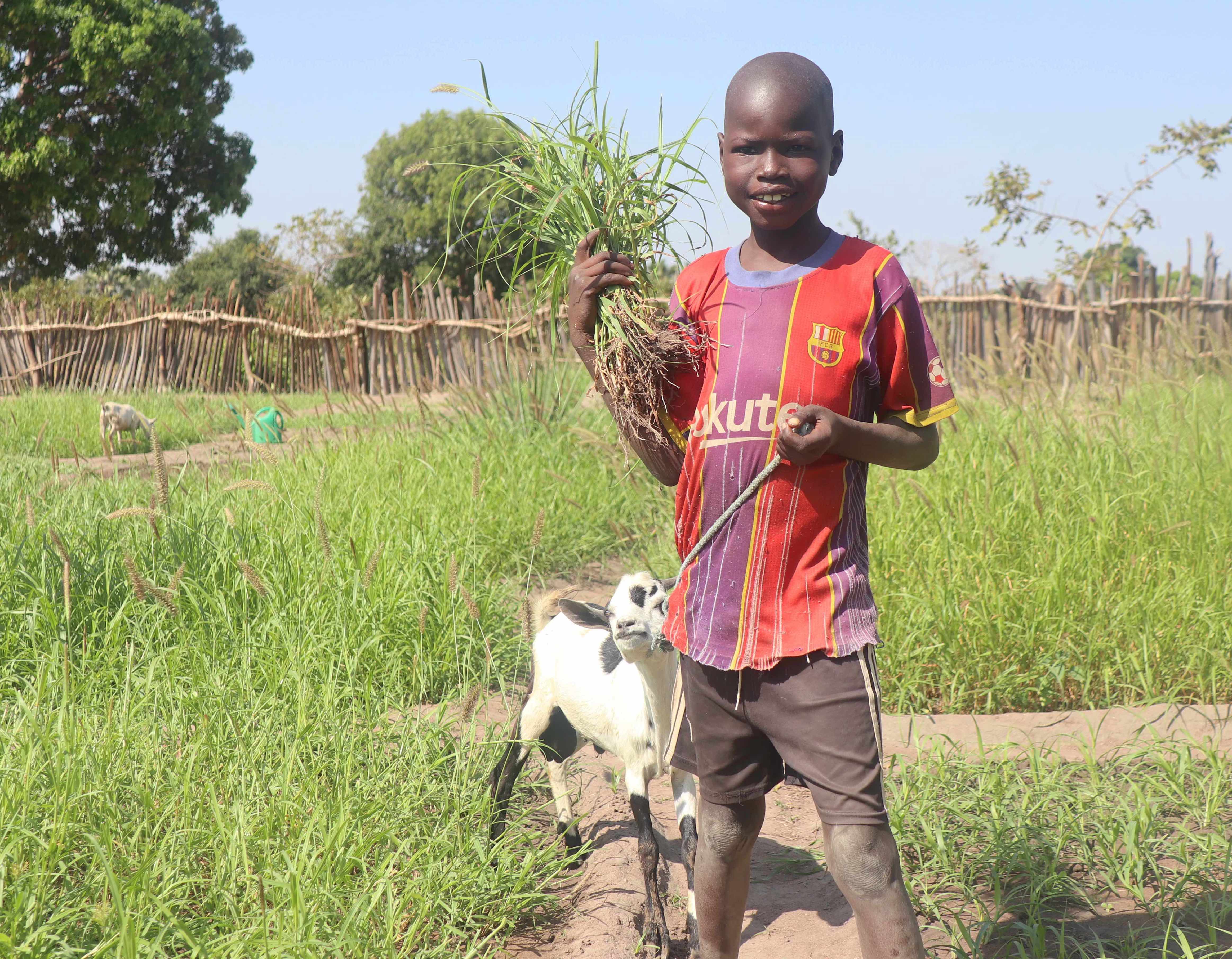
“Goats are usually sold at SSP 20,000 (around USD44) in the community but after feeding them well, we can sell at double the price thus helping boost income and livelihood. Our lives will never be the same again”, Abuk adds.
Project Coordinator Maria Deng says, “We keep on building the capacity of pastoralists on the utilization, preservation and production of forage across the border area of Warrap and Western Bahr El Ghazal State, then try to limit the number of cattle moving to in the state where huge numbers migrate in search of pastures and water.”
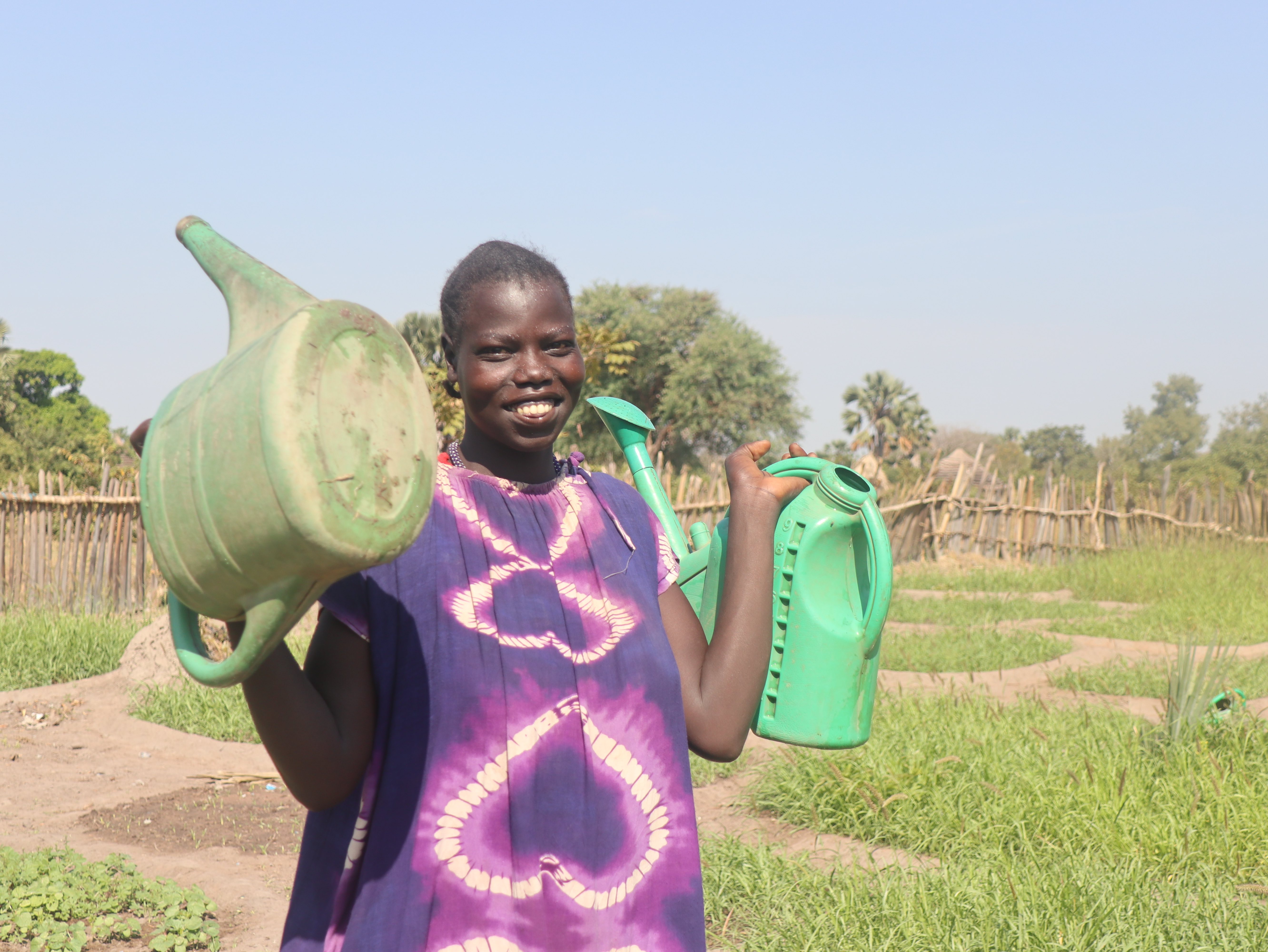
Deng adds, “Fodder production is well accepted by the community, they just need to learn more on dairy management. I hope the donors will continue to support empowering women pastoralist by establishing small-scale dairy farms to serve as a center for milk production. This, I believe, can contribute to peace and stability.”
“The community are now appreciating the idea of commercial livestock. But due to the short span of the project, the targeted groups are not yet completely empowered to ensure sustainability, as we struggle for required funding to address the gap. We still need help”, she concludes.
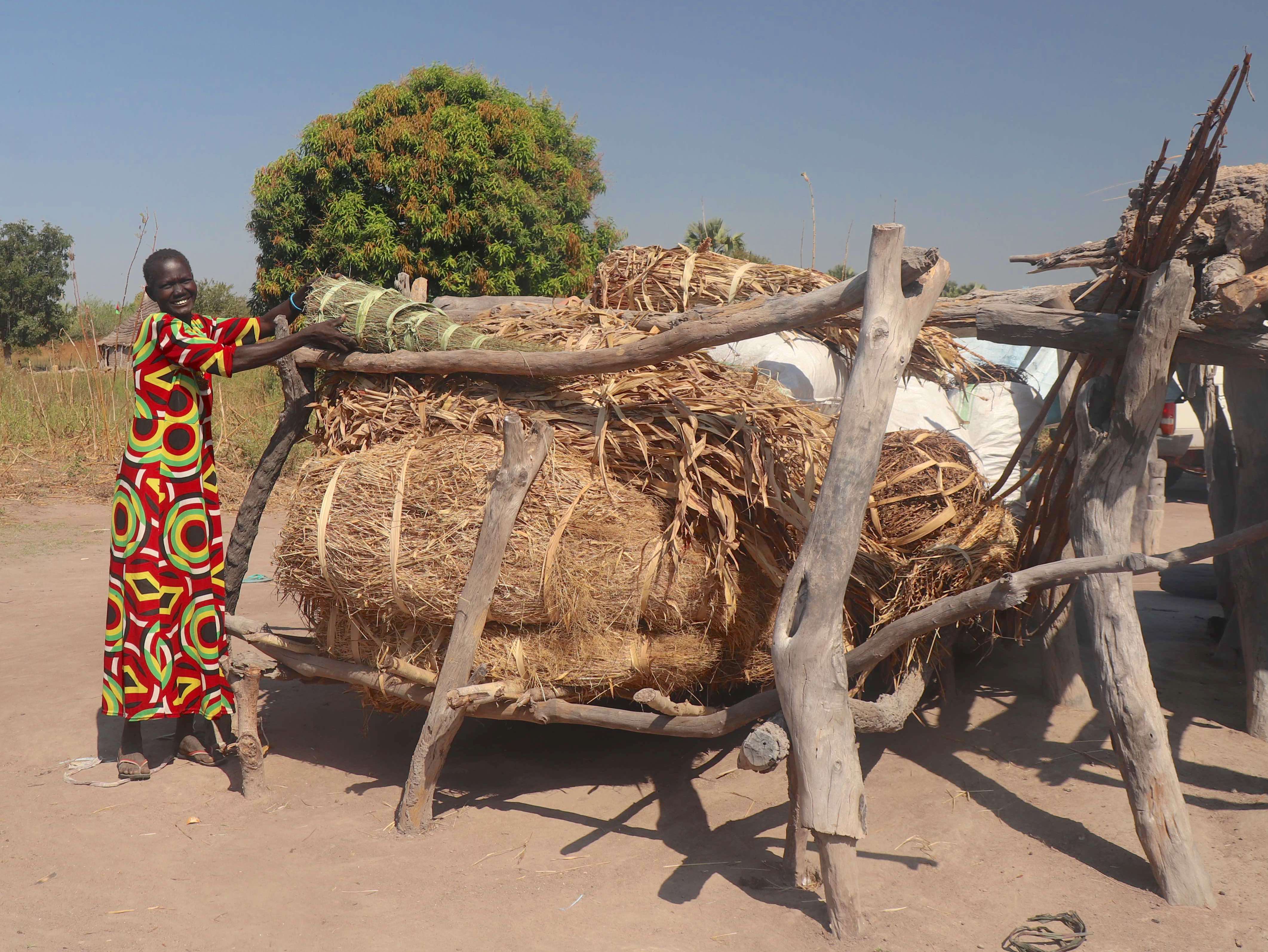
Story and photos by Scovia Faida Charles Duku, Communications Coordinator